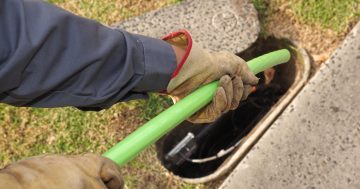 The Australian Competition and Consumer Commission (ACCC) has reported that losses to telephone scams based on the National Broadband Network (NBN) this year have already surpassed the total for 2018.
The Australian Competition and Consumer Commission (ACCC) has reported that losses to telephone scams based on the National Broadband Network (NBN) this year have already surpassed the total for 2018.
Consumers lost an average of more than $110,000 each month between January and May this year, compared to around $38,500 in monthly average losses throughout 2018 — an increase of nearly 300 per cent, it said.
Acting Chair of the ACCC, Delia Rickard said people aged over 65 were particularly vulnerable, making the most reports and losing more than $330,000 this year.
“That’s more than 60 per cent of the current losses,” Ms Rickard said.
“Scammers are increasingly using trusted brands like ‘NBN’ to trick unsuspecting consumers into parting with their money or personal information.”
She said common types of NBN scams included someone pretending to be from NBN Co or an internet provider calling a victim and claiming there was a problem with their phone or internet connection, which required remote access to fix.
She said they also pretended to be the NBN attempting to sell NBN services, often at a discount, or equipment over the phone.
“Scammers may also call or visit people at their homes to sign them up to the NBN, get them a better deal or test the speed of their connection,” Ms Rickard said.
“They may ask people to provide personal details such as their name, address, date of birth, and Medicare number or ask for payment through gift cards.”
Chief Security Officer at NBN Co, Darren Kane said it was important to remember that NBN Co was a wholesale-only company and did not sell services directly to consumers.
“We will never make unsolicited calls or door knocks to sell broadband services to the public,” Mr Kane said.
“We will never request remote access to a resident’s computer and we will never make unsolicited requests for payment or financial information.”
Ms Rickard urged people simply to hang up if someone claiming to work ‘for the NBN’ tried to sell an internet or phone service.



